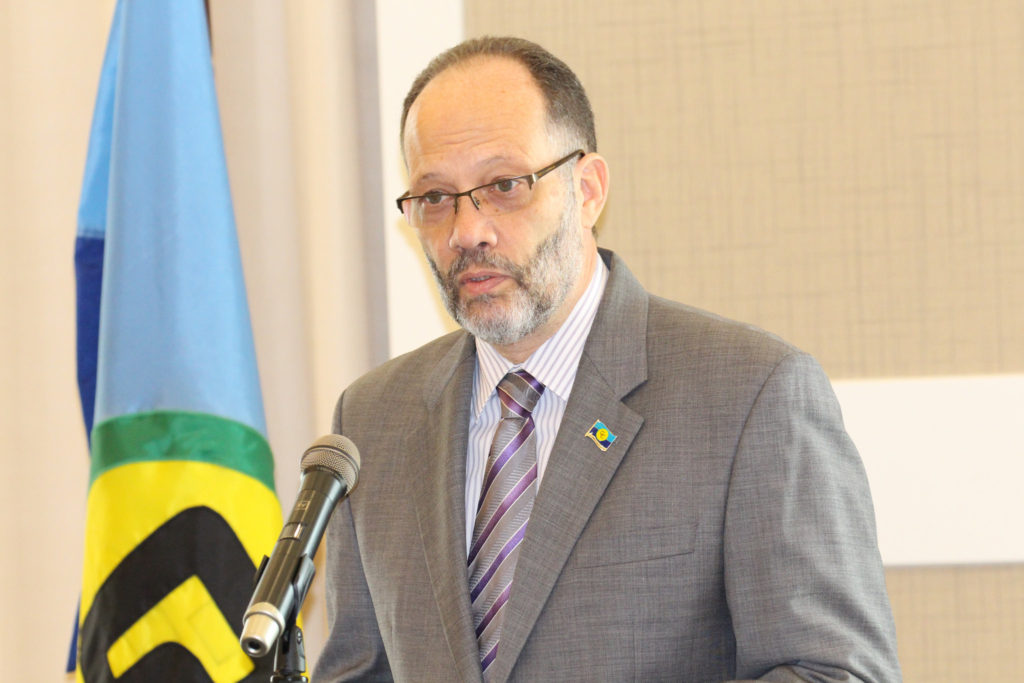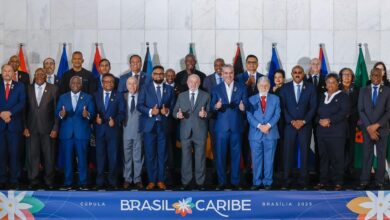Caribbean Community (CARICOM) Secretary-General Ambassador Irwin LaRocque has made a call for fairness in international financing for Small Island Developing States (SIDs), noting that they have been experiencing a battering from climate impacts, not of their own making.
“We have had to face the sharp end of climate change impacts in conjunction with our other inherent vulnerabilities. It is, therefore, crucial that vulnerability be the main criterion in determining access to concessional financing, which we urgently need in our quest for resilience.”
The CARICOM Secretary-General was at the time speaking at a High Level Panel Discussions on Climate Disruption, Biodiversity Loss and Nature-Based Solutions. In partnership with the CARICOM Secretariat and the Caribbean Community Climate Change Centre (CCCCC), the government of the United Kingdom (UK) hosted virtual the Forum, as President of Twenty Sixth Conference of Party of the Framework Convention on Climate Change (COP26) on Tuesday 25 May.
The organisers anticipated that the discussion would build on the momentum provided by the CARICOM Moment of Ambition, convened in December 2020. That Forum highlighted solutions that harness SIDS leadership in conservation and climate action whilst raising some of the challenges the Region faces. The event on Tuesday was also to heighten CARICOM’s commemoration of World Biodiversity Day and support preparation for COP26 under the Nature-Based Solutions campaign, a key pillar of the UK’s COP26 Presidency.
In his remarks, Ambassador LaRocque said SIDs faced disadvantage with accessing financing to recover from the impacts of climate change and resilience to them.
As the Region builds back better from the multiple crises, he said it should be in harmony with nature, as the environment is critical to resilience.
“We must take account of the rich natural resource base of the Region, including rich biological resources and ecosystem services which we rely upon in all aspects of our lives. Mangroves, wetlands, forests, seagrass beds and coral reef systems all offer multiple direct climate resilience services and important benefits that boost overall SIDS resilience,” Secretary-General LaRocque stated.
Underscoring the importance of the Region’s forests, he said they protect freshwater resources for cities and communities, and play a major role in global climate mitigation, due to their carbon-absorption capacity. In this context he noted, Guyana and Suriname, forests cover in excess of 80% of land area, while Belize, Dominica and St, Vincent and the Grenadines have over 60% of its land still forested.
Highlighting the critical importance of forests to Region’s indigenous people, he added,
“The Region has recognised the tremendous potential of nature-based solutions that can combat the ravages of climate change, and multiply the benefits derived from protecting and restoring nature.”
The Secretary-General noted the Region’s celebration of International Day for Biological Diversity on 22 May under the theme “We are part of the solution.” He thanked the United Kingdom for prioritizing Nature-Based Solutions during its Presidency of COP26.

Lord Goldsmith, Minister of State for the Foreign, Commonwealth and Development Office of the United Kingdom delivered remarks at the Forum.
“We cannot tackle climate change and keep the 1.5 degree goal alive without protecting and restoring global biodiversity,” he said, adding, “that’s why nature is so central to the UK’s COP26 Presidency’s aims and why I commend the leadership the Caribbean has shown.”
He said under its Presidency of COP26, the UK would ensure that COP26 delivers for everyone, particularly those most vulnerable to climate change.
“I look forward to working alongside all Small Island Developing States and Caribbean nations to raise global ambition across mitigation, adaptation and finance,” Lord Goldsmith stated.






